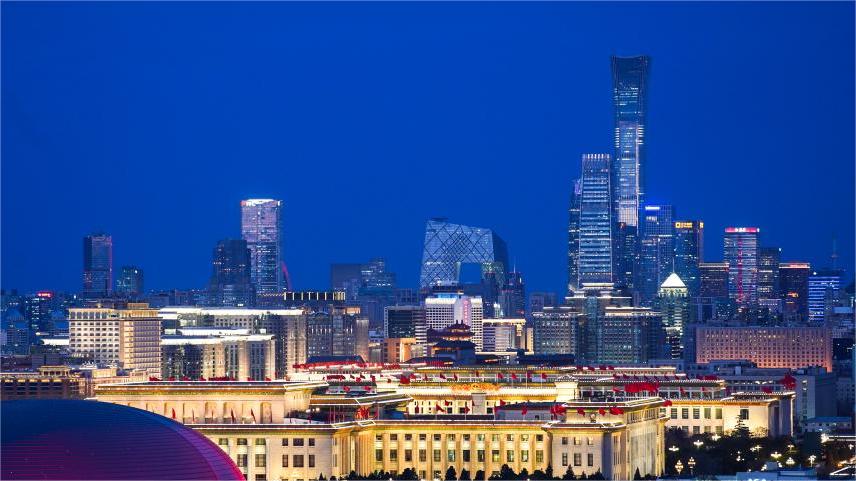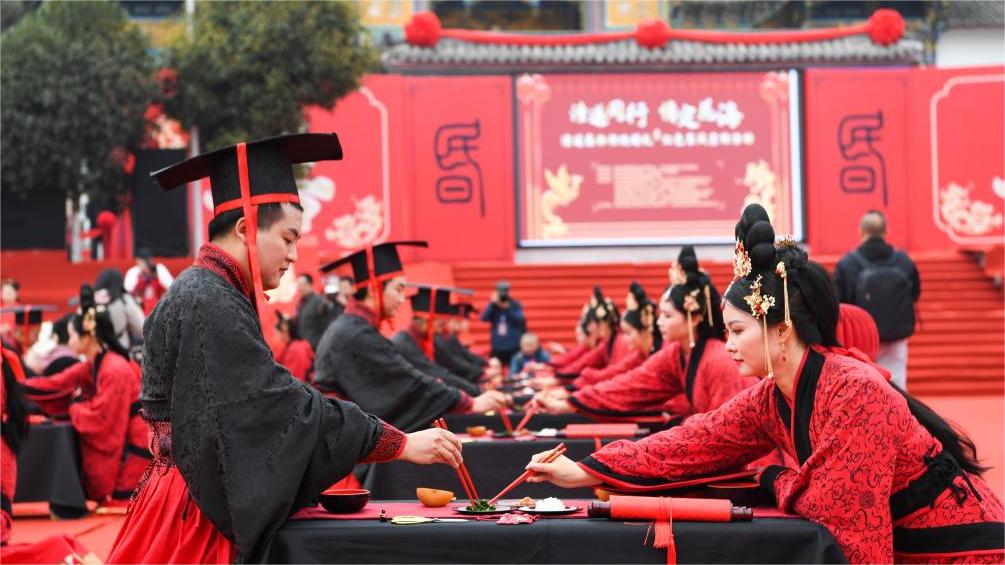Interview: China on track to achieve objectives, says U.S. scholar
CHICAGO, March 14 (Xinhua) -- With the right fundamentals, including visionary leadership, large capital resources, high-quality human capital, and a disciplined labor force, "China is on track to achieve its intermediate and long-term objectives," a U.S. scholar has said.
While noting that "the Chinese economy is facing headwinds," Khairy Tourk, professor of economics at the Stuart School of Business of the Illinois Institute of Technology in Chicago, made a distinction between cyclical issues and structural ones.
Issues related to the property market, chip, and disruptions in the consumers and investment markets caused by COVID-19 are cyclical issues, and "are relatively easy to take care (of)," Tourk told Xinhua in a recent interview. "The Chinese government has taken positive steps to find solutions to these cyclical issues."
"It'll take a little time for them to adjust, but we already see good signs," said Tourk, referring to China's economic growth of 5.2 percent and consumption growth of 9 percent in 2023.
"This is a very healthy growth. We also see record holiday travel. We see more people going to the movies. These are all encouraging signs," he added.
Structurally, the Chinese economy is moving from high-quantity growth to high-quality growth, with new drivers of growth in such fields as green technology, solar panels, and electric vehicles to achieve carbon neutrality, he said.
Tourk divided foreign investment in China into two categories: long-term foreign investment and short-term or portfolio foreign investment motivated by short-term considerations.
As the interest rate in the United States is higher than in China, it is natural for these portfolio investors to come to invest in the United States. Tourk holds that most foreign companies in China, including American ones, are optimistic about the Chinese economy and are thinking of how to expand in the large Chinese market.
De-risking is a term that has more geopolitical elements than economic ones, and is based on flawed assumptions, Tourk said.
Decoupling from China is going to be very disruptive to the global economy, Tourk said. It would result in producing goods at a very high cost, triggering global inflation. It will also sow discord in the global order, creating unnecessary tension between nations.
"No country could match China in terms of efficiency and low-cost production," he said. "No company can afford to survive if it does not sell in China."
Tourk speaks highly of the Global Development Initiative, the Belt and Road Initiative (BRI), and the Regional Comprehensive Economic Partnership that have taken shape in recent years.
Speaking highly of the BRI as the world's most transformative development project in the 21st Century, Tourk said that it may change current global political and economic patterns.
The present global order ignores the wishes of developing nations and is therefore failing, he said, noting that the BRI is creating a parallel system that "helps the majority of humankind to participate in the new global order as equal partners."
As more nations participate in the new supply chains, there will be more cooperation, more interactions, and more people-to-people exchanges, he said, expressing hopes that as the BRI grows, "there will be more room for peace and prosperity everywhere."
Photos
Related Stories
- China reprimands US for economic bullying over semiconductor restrictions, warning of global supply chain disruption
- A forced economic ‘de-coupling’ between US and China could be too costly: Ambassador Xie Feng
- Commentary: "China card" no cure for America's ills
- U.S. fund manager buys up Chinese debt
- China encourages peoples of China, U.S. to make more exchanges: FM spokesperson
Copyright © 2024 People's Daily Online. All Rights Reserved.









